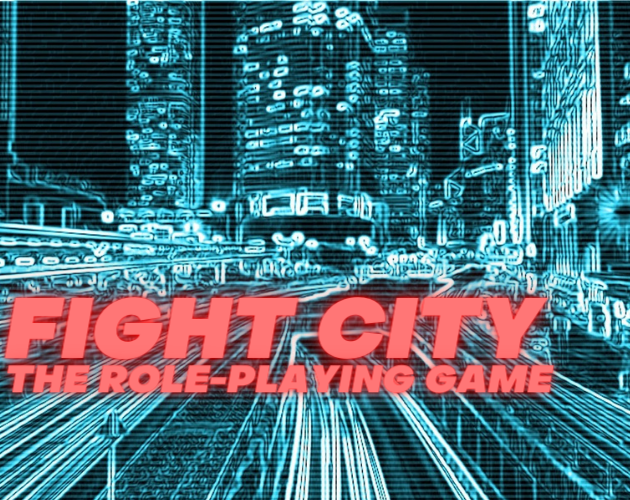Lazy bookmark -
My working idea now is, in brief:
Old School Hack's 2d10 attacks with the face die.
If you have advantage, roll 3d10 and keep the 2 best. If disadvantage roll 3d10 and keep the 2 worst.
Each round has 'pong initiative,' where the baddies and players take turns deciding what they're going to do. This has the effect that players can often get their buddies out of bad situations, and usually can take out the first wave of mooks, but then the later waves get to land some hits before we move to the next round.
Each character picks (or is pregenerated with) one light attack mode and one heavy attack mode. Light typically does 1 dmg, heavy 3, with variations for range and rider effects and such.
As your action, the two most basic options are Fierce or Flurry.
- For Fierce, you make an attack roll with a heavy weapon, which does nothing if you miss, so you'll usually want to save this for when you have some sort of improved chance to hit or when you really need to land the effect.
- For Flurry, you automatically land a hit with a light weapon, and then you make an attack with advantage. If it hits, you land another light hit. It doesn't have to be at the same person, though.
You also have a Super move, which you can trigger if your dice match (or if any 2 match, if you have advantage). In addition to the attack's normal effect, it does something cool, typically dealing at least 3 extra damage, but with combo potential.
You have a pool of resources called Peril that starts at 0 but goes up as bad stuff happens (like when you're bloodied, or the first time an ally is knocked out in a fight). Leveling probably gives you an increased starting Peril after each rest. You can spend 1 Peril to trigger a Super move regardless of dice, or to get +5 to your attack roll.
You get one teamwork ability, which is a perk that happens if you attack someone an ally also attacked.
And one focus ability, which takes your action and does something impressive, but requires concentration.
Then maybe some other small perk, like a magic item.
Finally, to get the 'twitch reflex' flavor, you have 3 Aegises. These are once-per-rest abilities that let you negate an attack and get some small perk that might change your fortune a bit.
----
Sample Characters, for theorycrafting.
Rantle, Heroic Scoundrel
Str +2, Dex +2, Con +2, Int +1, Wis -1, Cha +3
HP 10, AC 10
Attacks
Light: Thief’s Dagger (1), melee/thrown 30 ft. In melee, steals an item not in hand.
Heavy: Living Greatsword (3), melee, foe-feller (double dmg against large creatures)
Super: Greatsword Sweep (pick 3 adjacent squares, greatsword deals 1 dmg against each foe in those spaces)
Focus: Silvertongue (various bard-esque effects with a 60-ft. range for as long as you keep concentration; you pick one whenever you complete a rest, such as Song of Forms - each ally’s attacks become enchanted; or Commanding Presence - once per round you can trigger an ally’s teamwork ability even if you don’t attack the same person; or Center of Attention - enemy that don’t target you have disadvantage on their attacks)
Teamwork: Backstab (if you attack a target an ally is also attacking, you deal +2 dmg)
Item: Living Blade. Flaming (if there’s fire within 5 ft at any point, it burns for the rest of the combat, which sets people it hits on fire, dealing ongoing 1 fire damage, save ends). Thrown (spend Peril to throw it 60 ft. as a fierce attack, returns at the start of your next turn).
Aegises
Dodge: When an attack would hit you, move up to 15 ft without provoking, and negate the triggering attack.
Distracting Appeal: When an attack would hit you or an ally within 60 ft, as long as the attacker can hear you and you have not attacked them, negate the triggering attack.
Counterattack: When an attack would hit you, interrupt with either a Fierce or Flurry. If the attacker is rendered unable to attack you, negate the triggering attack.
Skills
{work in progress}
Guthwulf, Minister of Pain
Str +1, Dex +0, Con +3, Int +2, Wis +2, Cha +2
HP 10, AC 8
Attacks
Light: Staff of pain (1), melee, the next attack against them has advantage.
Heavy: Brass talon (2), melee/range 60 ft., gain 1 Peril if the creature dies this round
Super: Stone fist (60 ft. line, and when it hits the first person in line, a fist grabs everything in adjacent spaces, dealing 2 dmg and restraining them, save ends)
Focus: Summon fiend (appears at the end of your turn, lasts for as long as you maintain concentration; you control it, and the only thing you can do is move; damage against it persists even if you summon it again; there are various demons you can acquire, and you choose when you complete a rest, such as Bearded Devil, Frog Demon, Imp, Necromantic Spirit, Succubus, Undead Shadow)
Teamwork: Intimidation (if you attack a target an ally is also attacking, the target is frightened of both of you, save ends)
Combo: Minister of pain (enemies within 5 ft of you take +1 dmg whenever hit by one of your allies).
Aegises
Heal Wounds. You don’t negate an attack, but you heal 5 HP to yourself or an ally within reach. Does not require an action.
Raking Counterspell. When a spell would hit you or an ally within 60 ft, cancel it. Make a brass talon attack against the caster.
Stoneshape. When an attack would hit you or an ally within 60 ft, create a 10-ft wall of stone between the attacker and target. It absorbs the attack and has 5 HP. It persists.
Skills
{work in progress}


